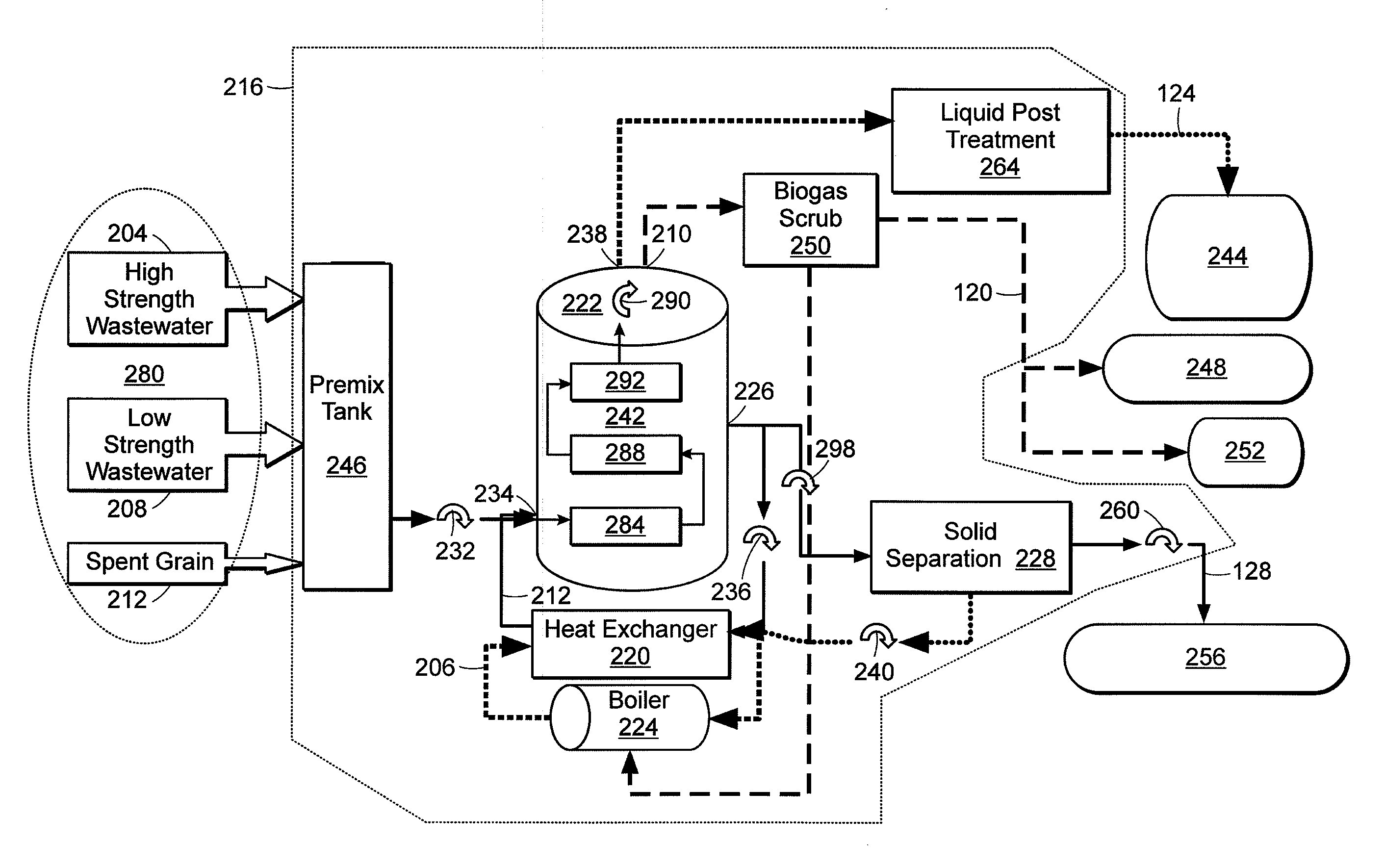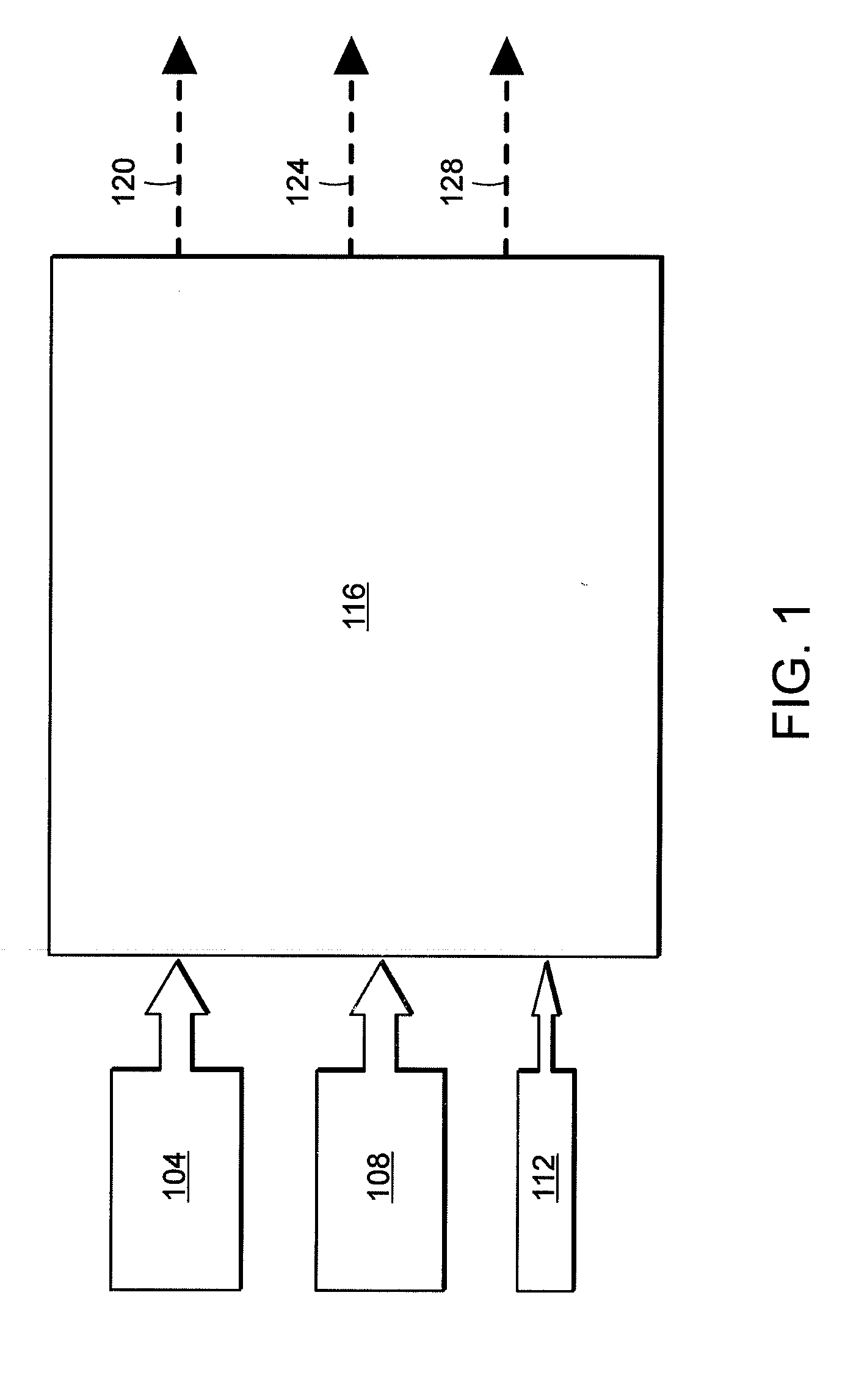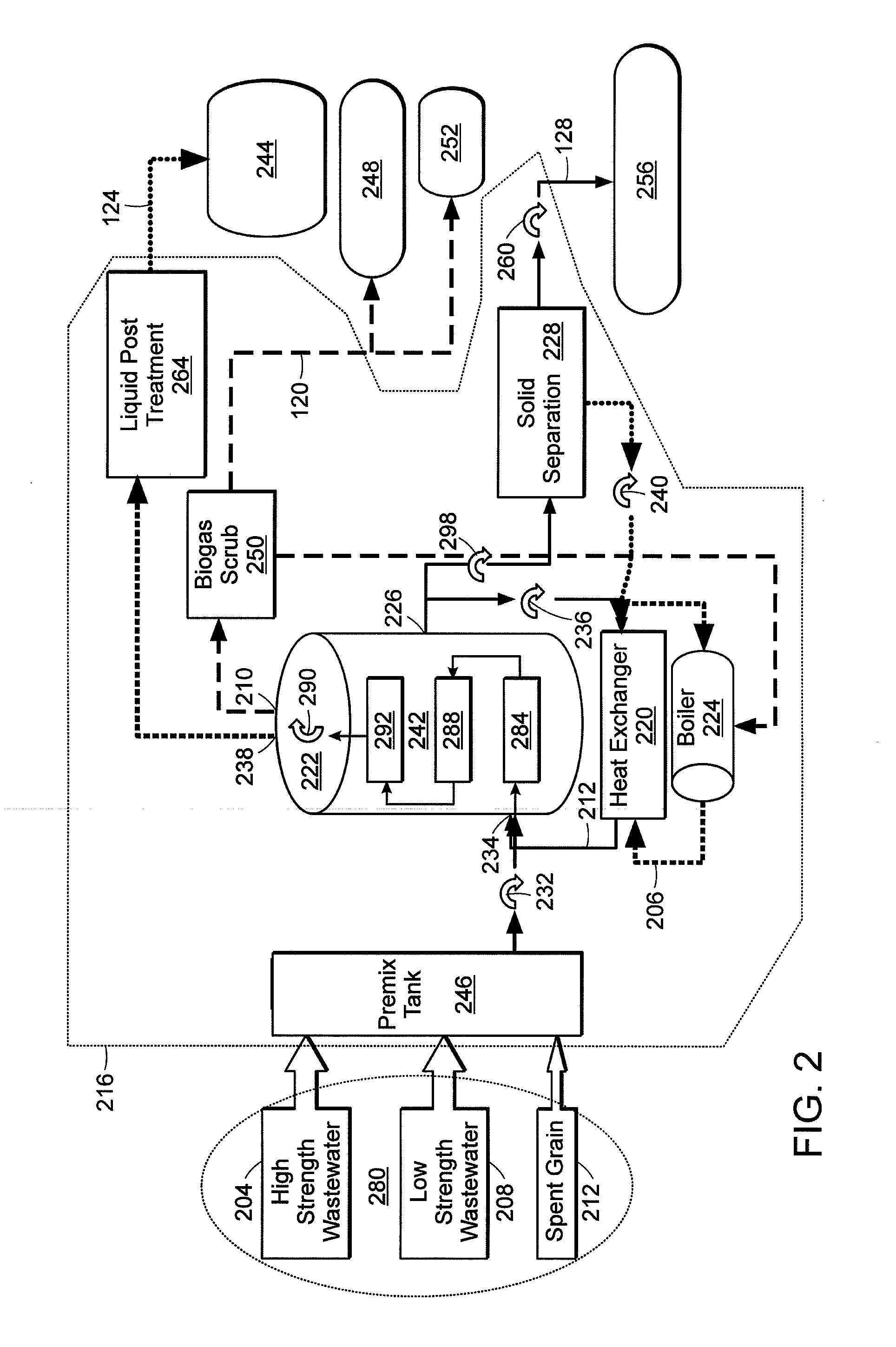Methods and apparatus for processing organic waste
- Summary
- Abstract
- Description
- Claims
- Application Information
AI Technical Summary
Benefits of technology
Problems solved by technology
Method used
Image
Examples
Embodiment Construction
[0022]FIG. 1 is a schematic illustration of an anaerobic digester system 116 for processing organic waste, according to an illustrative embodiment of the invention. High strength (high COD) wastewater 104, low strength (low COD) wastewater 108 and organic waste solids 112 (e.g., spent grain) are provided to the system 116. The high strength wastewater 104, low strength wastewater 108 and organic waste solids 112 are processed by the system 116 to produce gases 120, liquids 124 and solids 128. The gases 120 typically include a mixture of methane, carbon dioxide and some trace gases. The liquids 124 have reduced concentrations of organic compounds and are sometimes discharged for subsequent processing by a publicly owned treatment works. The solids 128 can be used as soil amendment materials. Soil amendment materials are materials that can be added to a soil as a nutrient (e.g., fertilizer) or to improve its physical properties (e.g., water retention, permeability, water infiltration,...
PUM
 Login to View More
Login to View More Abstract
Description
Claims
Application Information
 Login to View More
Login to View More - R&D
- Intellectual Property
- Life Sciences
- Materials
- Tech Scout
- Unparalleled Data Quality
- Higher Quality Content
- 60% Fewer Hallucinations
Browse by: Latest US Patents, China's latest patents, Technical Efficacy Thesaurus, Application Domain, Technology Topic, Popular Technical Reports.
© 2025 PatSnap. All rights reserved.Legal|Privacy policy|Modern Slavery Act Transparency Statement|Sitemap|About US| Contact US: help@patsnap.com



